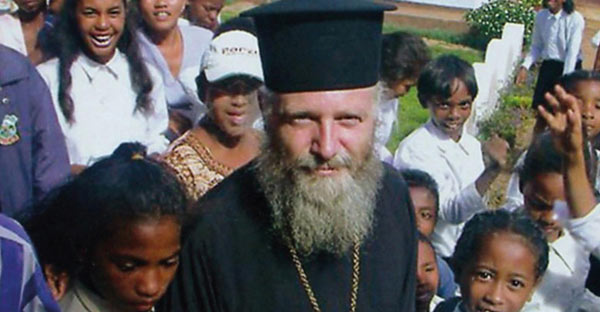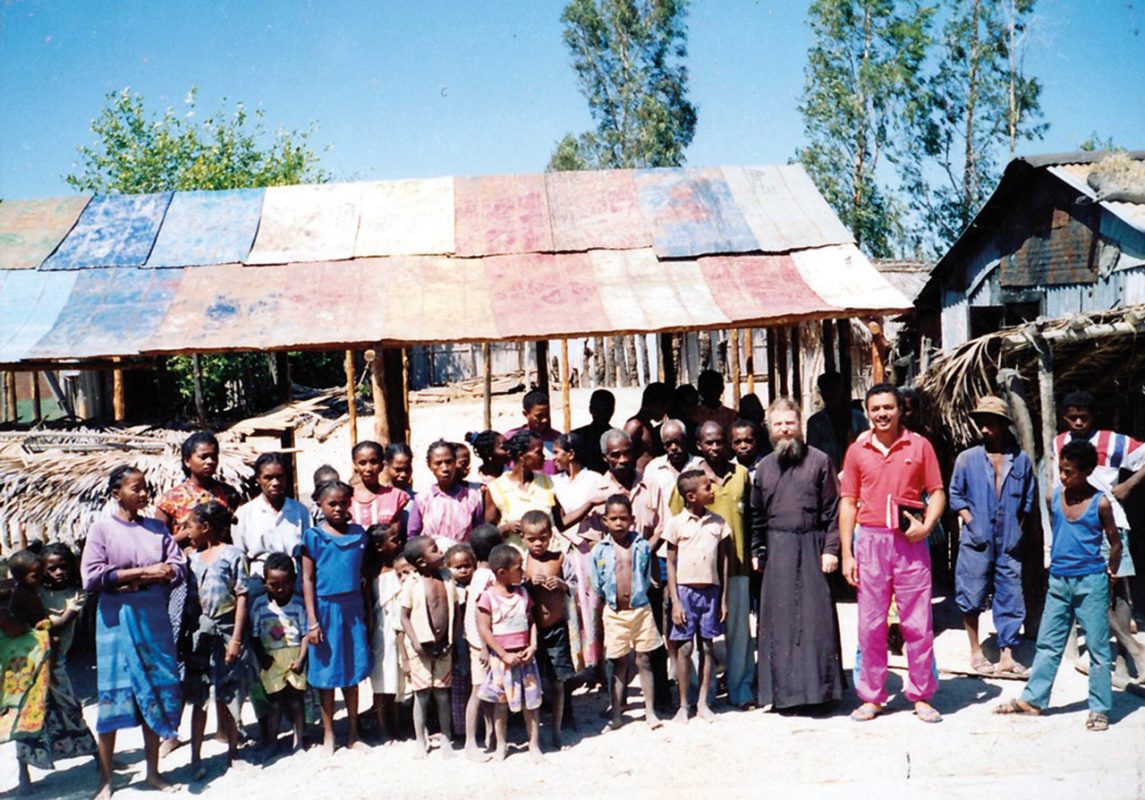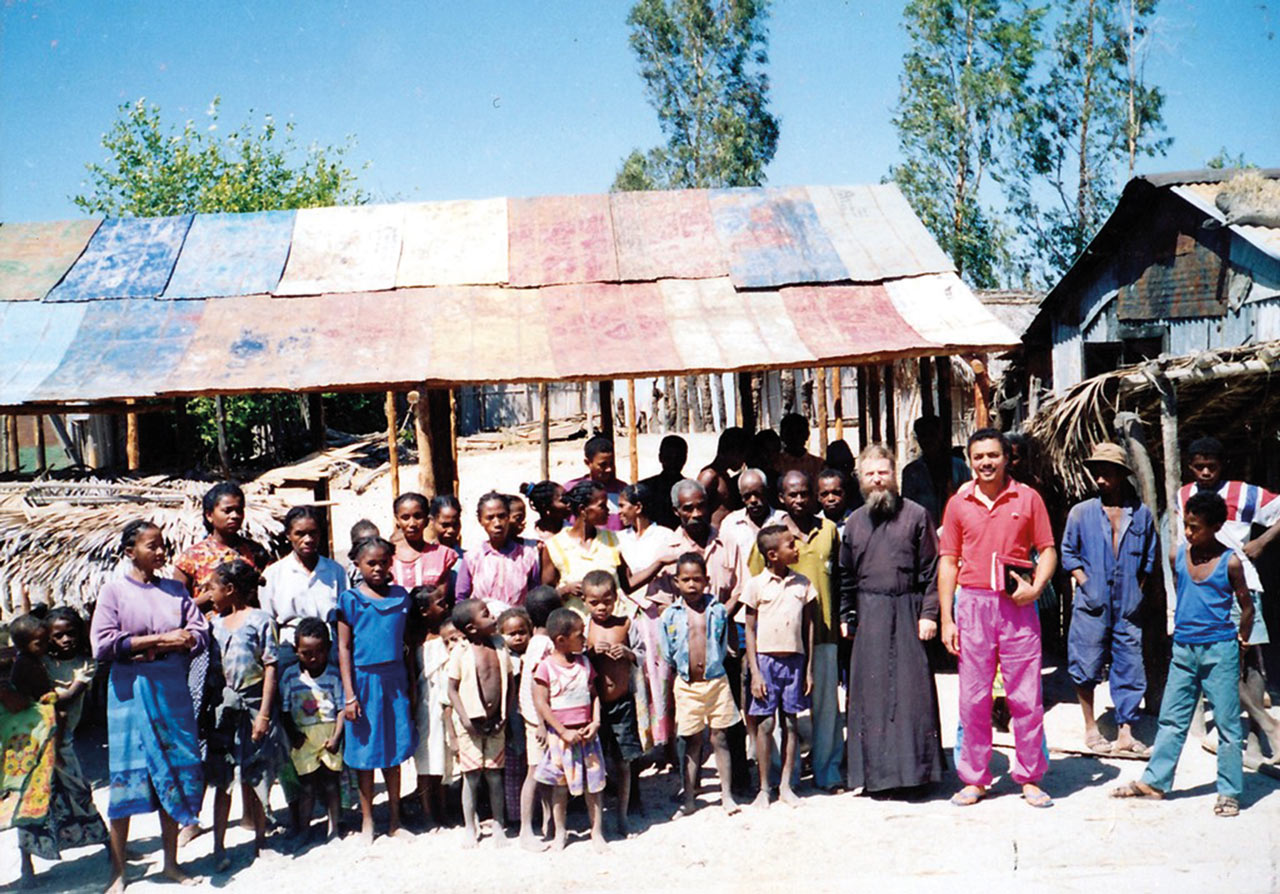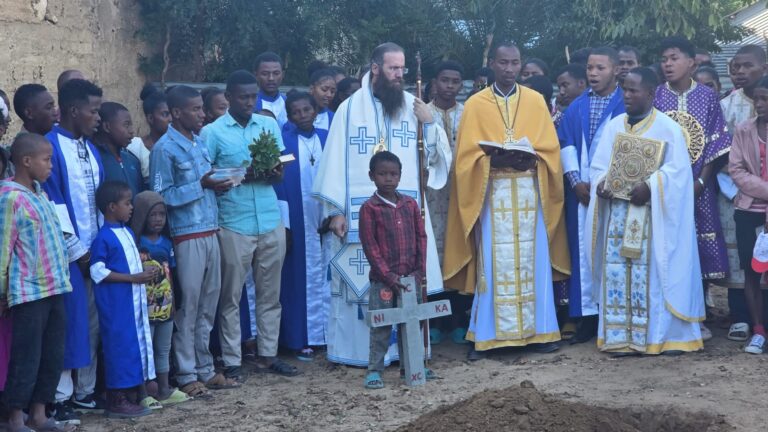Bishop Nectarios Kellis of Madagascar
Fifteen years! Five thousand four hundred and seventy-five days! Countless hours, numberless minutes, an ocean of seconds; and yet, all this time, all this measurement with its subdivisions, which is desperately trying to put some order in the chaotic space between events is an act so subjective! The fluid time itself, as the Holy Fathers put it, the dubious space-time continuum of natural scientists, is at its core so human a construct! Without the human subject, without this wise saying «man is the measure of all things», even without this biochemistry of our brains, the intervals between events would range from meaningless to non-existent. We are the ones who, as perishable creatures, consistently want to measure the periodicity of our deterioration, our falls, we are the ones who perceive everything in flux, and definitely we are the ones who, once we define time, depending on the importance of events, misrepresent it.

And what does this have to do with number 15? It is absolutely relevant. Because this largely insignificant period of time, always compared to the years that humankind has been on earth, not merely through the subjective perception of time, but through the more objective inter-subjective co-perception and comprehension of events, tends to constitute the beginning of an originative myth, the beginning of a shared national and cultural memory of a highly emotional and at the same time rational collective unconscious. For the people of Madagascar it is both a sad and joyous day; the day on which the first Orthodox Bishop, Fr. Nectarios, through a horrible death goes into the life of eternal bliss. It is the fall of the fatal Chinook, the mysterious death that relates the whole Patriarchate of Alexandria to the mystery of death, since the second throne of Orthodoxy remains headless and many local Churches lose the paternal concern and love of their Bishops – Shepherds. Among them is Madagascar. This country, which was introduced to Orthodoxy by a man of a fiery zeal and nobility, Fr. Nectarios, is merely confined to the mournful hearing of spiritual orphanhood, being deprived of the obvious, the corpse, the tangible proof of death and the consolation of mourning. The land he so much loved and watered with his own sweat and tears, could neither give him a last embrace, nor be his last earthly abode while awaiting Resurrection as the deceased Prelate’s venerable body was never found. Nevertheless, despite the fact that there is nothing left of him, a part of his physical presence that could be a starting point for memories, in people’s hearts his spiritual presence is more than real. There are so many villages in the depths of southern Madagascar where men and women would say in broken Greek: «Nectarios – Nectarios»! There are so many places where the only sign of Orthodoxy is a hut with a rickety cross on the roof, and old people would come and talk to me about Fr. Nectarios, the one who has been physically missing for fifteen years, but whose love is tied to the eternal present.
Among them is Madagascar. This country, which was introduced to Orthodoxy by a man of a fiery zeal and nobility, Fr. Nectarios, is merely confined to the mournful hearing of spiritual orphanhood, being deprived of the obvious, the corpse, the tangible proof of death and the consolation of mourning. The land he so much loved and watered with his own sweat and tears, could neither give him a last embrace, nor be his last earthly abode while awaiting Resurrection as the deceased Prelate’s venerable body was never found. Nevertheless, despite the fact that there is nothing left of him, a part of his physical presence that could be a starting point for memories, in people’s hearts his spiritual presence is more than real. There are so many villages in the depths of southern Madagascar where men and women would say in broken Greek: «Nectarios – Nectarios»! There are so many places where the only sign of Orthodoxy is a hut with a rickety cross on the roof, and old people would come and talk to me about Fr. Nectarios, the one who has been physically missing for fifteen years, but whose love is tied to the eternal present.

I am tested! My conscience is tested for I can barely follow in the footsteps of this Titan of Mission, this man who twenty years ago met me through his pen on the pages of a journal, and set me on fire for his love of the Vineyard, which has not yet been cultivated. Fifteen years, then, and six identical words he chose to repeat while making the sign of the cross at the time of his ordination as Bishop. “Glory to God for all things, glory to God for all things, glory to God …», the words of St. John Chrysostom on his long journey to exile and the certainty of death. For Fr. Nectarios, too, the daring venture of Madagascar was a voluntary exile and certain death for the salvation of the people who he was appointed to minister to by our Holy Church. And if the words “exile” and “death” sound cruel and unfit for the ministry of a bishop, I repeat them five times making the sign of the cross myself, for it is the phrase «of one’s own volition” that turns martyrdom into the ticket to Paradise.
† Prodromos of Toliara







